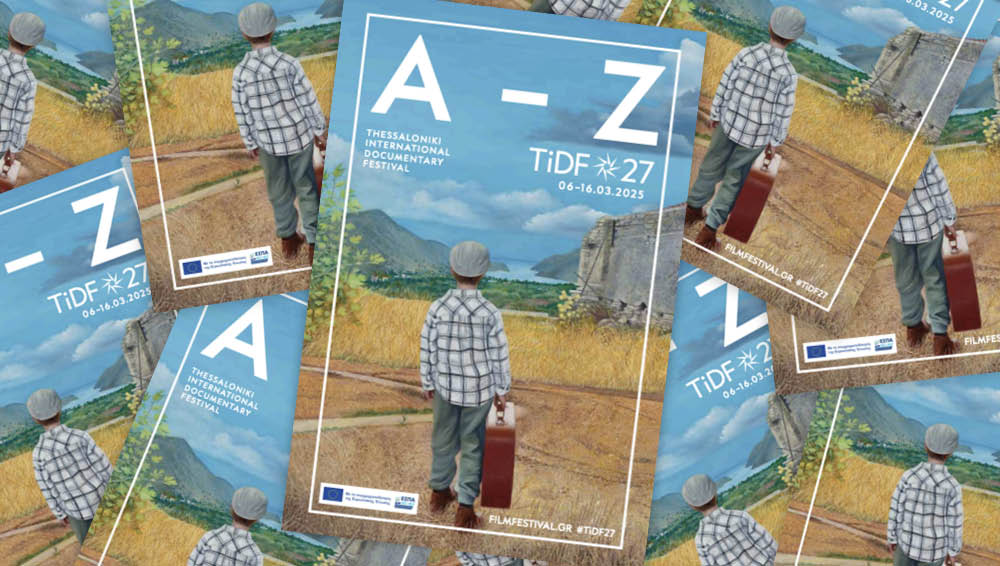November 6-15, 2015
LUX PRIZE PRESS CONFERENCE
A press conference presenting the LUX Film Prize, awarded annually by the European Parliament, was held on Wednesday, 11 November 2015, at Warehouse C in the context of the 56th Thessaloniki International Film Festival. For the fourth consecutive year, spectators will have the chance to watch the three finalists for LUX Prize on their nationwide premiere at the TIFF. These year’s finalists are: Mediterranea by Jonas Carpignano (Italy, France, USA, Germany, Qatar), Mustang by Deniz Gamze Erguven (France, Germany, Turkey) and The Lesson by Kristina Grozeva and Petar Valchanov (Bulgaria-Greece), which participated in the competition section of the 55th TIFF.
Present at the event was Leonidas Antonakopoulos, head of the European Parliament office in Greece. Film critic and journalist Yorgos Krassakopoulos, member of this year’s selection committee, was the moderator of the event.
In his remarks, Mr. Antonakopoulos said that the LUX Film Prize is part of the European Parliament’s goal to promote the European cultural heritage: “It is an initiative launched on 2007 and this is the ninth year that the LUX Film Prize will be awarded. We aim to promote quality European cinema. It is a way to encourage producers and directors to safeguard European cinema values, not found in U.S. productions”.
Although the European Parliament does not award a cash prize, it finances the subtitling of the three films competing for the prize into the 24 official EU languages and supports their distribution, either through the European Parliament’s web TV (EuroparlTV) or through the cooperation with European film festivals, as Mr. Antonakopoulos explained. He also added: “Many of these films have proved to be quality films, praised by film professionals, and the final selection results from a long process. The selected films are co-productions, with strong intercultural features. They promote universal European values in very interesting ways. The goal is for each film to move the audience, make them think on our common European home, on solidarity and tolerance of diversity, which are very important values for Europe as a whole”.
The award of the LUX Prize will take place on November, 25 in Strasbourg. Yorgos Krassakopoulos, one of the members of this year’s selection committee, explained the selection process for the first ten and the resulting three finalists. The committee consists of twenty members (4 observers and 16 voting members), who are film professionals, including producers and distributors.
“This year in order to make the selection of the ten films included in the shortlist we saw 70 European productions. In addition to their artistic value, we also seek films that discuss key issues relating to Europe now,” Mr. Krassakopoulos said, noting that it is very important that art functions as “a tool for mutual recognition, which brings us closer to Europe“, as he noted. ”Art is sometimes the best way to understand the human condition,” he added.
During the selection process, each member of the committee may suggest five films (two of which from his country), while proposals may also be submitted by the filmmakers themselves. The 10 shortlist films are screened at the Karlovy Vary International Film Festival and afterwards the three finalists are announced and screened at the Venice Film Festival. After that, in November, these films are screened at a wide network of film festivals throughout Europe, including the TIFF. The fact that they are screened throughout Europe is a very important step for films that “are difficult in terms of commercial distribution. Through their selection, these films gain 'visibility', they can reach a wider audience and are often nominated for other awards, even the Academy Award for Best Foreign Language Film,” Mr. Krassakopoulos noted.
The three films of the final selection are presented to the MEPs, who decide which one will be awarded, while the audience’s vote is also announced after the winner’s official announcement. Most MEPs have no professional involvement with cinema, but as Mr. Antonakopoulos noted “they are elected in 28 countries and represent more than 100 national political parties of varied political tendencies.” As he added, “this process is part of the effort to raise awareness among politicians with regard to the importance of cinema and its impact on society, and further on the importance of safeguarding the value system these films encompass. The ultimate goal is an institution directly elected by citizens, in a difficult time for the European Union, in which there is need of acceptance, mutual understanding, solidarity, cooperation and tolerance towards diversity. The organizers of the LUX Prize are considering ways of further audience involvement in the process of the selection of competing films, together with the European Film Academy and the European Film Awards.
The audience can vote on the website www.luxprize.eu or Facebook page. The most voted film will be awarded the Public Mention award, and one of the audience voters will be randomly selected to attend the 2016 Karlovy Vary International Film Festival, where the result of the audience vote will be announced.
















